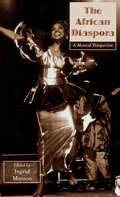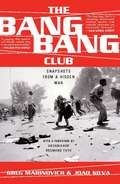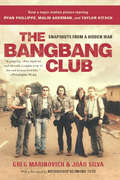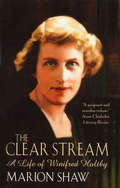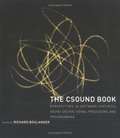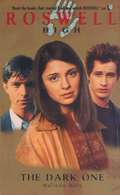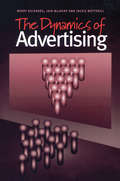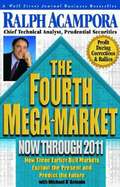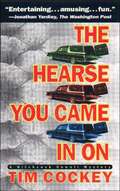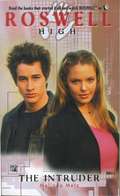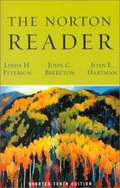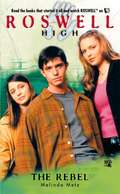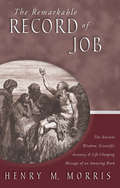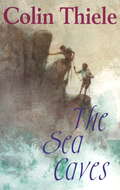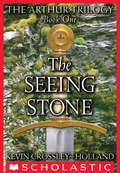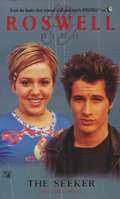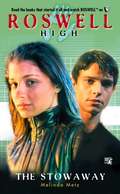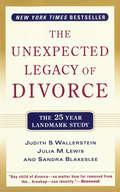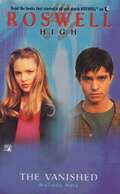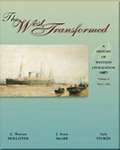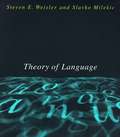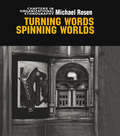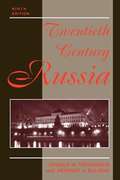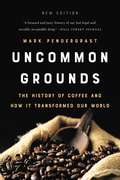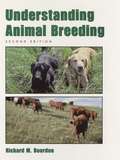- Table View
- List View
The African Diaspora: A Musical Perspective (Critical and Cultural Musicology)
by Ingrid MonsonThe African Diaspora presents musical case studies from various regions of the African diaspora, including Africa, the Caribbean, Latin America, North America, and Europe, that engage with broader interdisciplinary discussions about race, gender, politics, nationalism, and music. Featured here are jazz, wassoulou music, and popular and traditional musics of the Caribbean and Africa, framed with attention to the reciprocal relationships of the local and the global.
The Bang-Bang Club: Snapshots From a Hidden War
by Greg Marinovich João SilvaDuring the final, bloody days of South African apartheid, four remarkable young men-photographers, friends, and rivals-banded together
The Bang-Bang Club: Snapshots From a Hidden War
by Greg Marinovich Joao Silva Archbishop Desmond TutuA gripping story of four remarkable young men—photographers, friends and rivals—who band together for protection in the final, violent days of white rule in South Africa.
The Clear Stream: The Life of Winifred Holtby
by Marion ShawWinifred Holtby was a prolific journalist and writer whose most famous work South Riding is on many university courses. She was an active campaigner for several progressive causes during the inter-war period such as pacifism, feminism and most important to her, racial equality and harmony in South Africa. She was the subject of Vera Britain's Testament of Friendship. She was essentially a 'woman in her time' and yet could also be seen as an index to many of the progressive movements which were around in the pre-war days and in this sense she was indeed a 'clear stream'. Written in a wonderfully accessible style interspersed with excellent research as well as warmth from one born in the same district as Winifred herself this is the definitive biography of a woman ahead of her time.
The Csound Book: Perspectives in Software Synthesis, Sound Design, Signal Processing and Programming
by Richard BoulangerWritten by the world's leading educators, programmers, sound designers, and composers, this comprehensive guide covers both the basics of Csound and the theoretical and musical concepts necessary to use the program effectively.
The Dark One: The Dark One (Roswell High #9)
by Melinda MetzTrue love never dies. Isabel has run away from home, and Max knows her life is in danger. He has to find her and save her, but time is ticking away. Alex is back on Earth, and he's a changed man. He looks better, feels better, and is ready to live life to the fullest -- without Isabel Evans. Little does he know he's the only person that can help the ailing Isabel. Will Alex be able to put aside his pride and save the life of his former love?
The Dynamics of Advertising
by Iain MacRury Jackie Botterill Barry RichardsThe authors suggest that advertisments, while important in our daily emotional self-management, are far more closely linked to the pragmatics of everyday life than their symbolic richness might suggest. Recent trends in advertisment content point to an important shift in our relationship to goods that reflects an increasing preoccupation with risk management.
The Fourth Mega-Market, Now Through 2011: How Three Earlier Bull Markets Explain the Present and Predict the Future
by Ralph Acampora Michael D'AngeloA proven leader in the financial world explains the current bull market--and how to profit from it--by comparing it to the great bull markets of the past.Were you surprised by Wall Street's incredible performance over the past few years? Ralph Acampora wasn't. In fact, Acampora, Prudential's top technical analyst, predicted the current bullish trend--and helped countless clients profit from it. Now you can too.Acampora coined the term mega-market to describe a bull market that lasts a minimum of ten years and a maximum of eighteen years with Dow gains of between 400% and 500%. In The Fourth Mega-Market, Acampora helps readers take advantage of the staggering performance of the current market by showing its similarities with the three previous mega-markets in American history. In an entertaining and straight-forward style, and with a wealth of informative charts and graphs, he helps readers recognize patterns that can explain market performance, showing how to use technical analysis to "hear the voices" of the market. He offers valuable tips, such as how to spot and protect yourself from a correction; how psychology and politics influence the market; and how to analyze the performance of various market segments. Finally, he makes exciting predictions on just where the market will go before it ends and how it will get there, giving specific recommendations. While today's information overload keeps us on the edge of our seats, scanning the numbers for subtle clues as to the market's next seismic shift, Ralph Acampora shows us the value of a larger perspective, one that not only explains today's mega-market, but also shows us how to keep investing our money wisely and ride high on the current wave.
The Hearse You Came in On: A Hitchcock Sewell Mystery
by Tim CockeyWhat self-respecting undertaker would allow himself to get involved in a murder investigation, a series of dirty videos, a case of political blackmail, and police corruption, as well as one of the worst amateur theater productions in recent memory? None, unless your name happens to be Hitchcock Sewell, the most charming suspense hero to come along in years. And who knew an undertaker could look so good? In this fast-paced and enormously entertaining mystery, Hitch has gotten himself into more trouble than any self-respecting undertaker should.
The Intruder: The Intruder (Roswell High #5)
by Melinda MetzLove...too late? Michael: He's being held in a secret compound. But he's concerned less for himself than his friends. Max. Maria. Liz. Alex. And Isabel. He's got to get out before he's forced to betray the Roswell residents whom Sheriff Valenti is dying to capture. And once Sheriff Valenti has the information he wants, he won't be needing Michael anymore. Isabel: She used to think of Michael as a brother. But now that he's been captured, she seems to be the only one able to hear his every thought, feel his every emotion, share his dreams. Could this special bond between them mean they're meant to be together? Time is running out for Isabel to know for sure...
The Norton Reader: An Anthology of Nonfiction Prose (Shorter 10th Edition)
by Linda H. Peterson John C. Brereton Joan E. HartmanThe shorter tenth edition of The Norton Reader happily blends the new and the old. It includes twenty-four new essays by twenty-three new authors. New annotations and study questions appear with many of the essays, whether old or new. The tenth edition also includes many favorite, now canonical essays: Joan Didion's "On Keeping a Notebook," George Orwell's "Shooting an Elephant," Martin Luther King Jr.'s "Letter from Birmingham Jail," Virginia Woolf's "A Room of One's Own"--to name only a few.
The Rebel: The Rebel (Roswell High #8)
by Melinda MetzIn book eight of the Roswell High series, Michael's dreams of finding his family are threatened when his brother, Trevor, has questionable motives.Blood brothers... Michael has finally found the one thing he always yearned for -- family. When his brother Trevor arrives in Roswell, Michael will do anything to please him. But soon Trevor's loyalties come into question -- and Michael is caught in the cross fire. Maria's little brother has disappeared and she knows the kidnappers are trying to get to her and her friends. Devastated and guilt-ridden, Maria turns to Michael for help. But will he be there for her, or has Michael himself become the enemy?
The Remarkable Record of Job: The Ancient Wisdom, Scientific Accuracy, & Life-Changing Message of an Amazing Book
by Dr. Henry M. MorrisFar from being an engaging fable, the account of Job in the bible is one of the most historically and scientifically accurate records of the ancient world. Perhaps the oldest book in the Bible, the book of Job touches on many subjects of science and history. This commentary on the controversial Book of Job is very different from most of the seminary and church teachings so prevalent today, for it attests to the historicity of a man named Job who understood at the end of his life that God cannot be ?figured out,? but He can most certainly be trusted.
The Sea Caves
by Robert Ingpen Colin ThieleA gripping tale of high adventure from master storyteller Colin Thiele.Twelve-year-old school friends Sam and Nick are exploring an old shipwreck when they discover a hidden cave in the cliffs nearby. Forbidden to climb on the dangerous cliffs, they set out secretly to explore the cave, expecting to find treasure washed in from the shipwreck.Without warning, the roof of the cave collapses behind them and they are trapped underground in total darkness, without water or food. Nobody else knows where they are. Nobody else even knows that the sea cave even exists?COLIN THIELE, AC, was one of Australia?s most distinguished and popular writers for children. Colin's books have won numerous Australian and international awards and have been made into many classic films, TV series, plays and picture books. His bestsellers include the multi-award-winning STORM BOY and BLUE FIN.
The Seeing Stone: The Seeing Stone (The Arthur Trilogy #1)
by Kevin Crossley-HollandArthurian legend comes to life in the first novel in this remarkable, award-winning sagaThirteen-year-old Arthur de Caldicot lives on a manor, desperately waiting for the moment he can become a knight. One day his father's friend Merlin gives him a shining black stone - a seeing stone - that shows him visions of his namesake, King Arthur. The legendary dragons, battles, and swordplay that young Arthur witnesses seem a world away from his own life. And yet there is something definitely joining the Arthurs together. It will be Arthur de Caldicot's destiny to discover how his path is intertwined with a king's . . . for the past is not the only thing the seeing stone can see.
The Seeker: The Seeker (Roswell High #3)
by Melinda MetzCircle of danger... Maria: She hasn't told her firends about the strange glowing ring that she found. It seems to be giving her powers -- special abilities that let her enter a world she's been dying to experience. Here's her chance to learn what she longs to know: how Michael feels about her. Michael: He feels all alone on Earth and he's searching for a place to belong. He didn't count on discovering someone to care about right here in Roswell. Now he's falling for his best friend. But what he doesn't know, and Maria doesn't realize, is that she's drawing danger to them all....
The Stowaway: The Stowaway (Roswell High #6)
by Melinda MetzTrust betrayed... Michael: He's still having flashbacks of his escape from the underground compound. Only Cameron, the mysterious girl he met behind bars, seems to understand him -- and realize that the sheriff may be gone but an even more dangerous enemy is out there.... Cameron: She fell for Michael while in the compound...spying on him for Sheriff Valenti. Now she feels guilty, and wishes she could tell him the truth. But how can she be honest -- without losing Michael?
The Unexpected Legacy of Divorce: A 25 Year Landmark Study
by Sandra Blakeslee Julia M. LewisDivorce is at once a widespread reality and a painful decision, so it is no surprise that this landmark study of its long-term effects should both spark debate and find a large audience.In this compelling, thought-provoking book, Judith Wallerstein explains that, while children do learn to cope with divorce, it in fact takes its greatest toll in adulthood, when the sons and daughters of divorced parents embark on romantic relationships of their own. Wallerstein sensitively illustrates how children of divorce often feel that their relationships are doomed, seek to avoid conflict, and fear commitment. Failure in their loving relationships often seems to them preordained, even when things are going smoothly. As Wallerstein checks in on the adults she first encountered as youngsters more than twenty-five years ago, she finds that their experiences mesh with those of the millions of other children of divorce, who will find themselves on every page.With more than 100,000 copies in print, The Unexpected Legacy of Divorce spent three weeks on the New York Times, San Francisco Chronicle, and Denver Post bestseller lists. The book was also featured on two episodes of Oprah as well as on the front cover of Time and the New York Times Book Review.
The Vanished: The Vanished (Roswell High #7)
by Melinda MetzGone for good? Max is on a mission to save Alex, who is stranded on the home planet. Alex may be lost or wounded -- or worse. To get Alex back, Max knows he'll need one of the Stones of Midnight. If only he knew where to find one... Liz understands that Max can't rest until he finds Alex. And she's been busy herself -- spending time with Roswell newcomer Adam. She's been having so much fun with Adam that Max is in danger...of being forgotten.
The West Transformed: A History of Western Civilization Volume C Since 1789
by Gale Stokes J. Sears Mcgee C. Warren HollisterThe West Transformed is a comprehensive, mainstream introductory Western Civilization or European History textbook. It covers a variety of fields of history including social history, but stresses traditional topics and a strong narrative. The development of civilization in the West is presented as a series of cultural, technological, social, and political transformations. A strong unifying theme focuses on the tensions between continuity and change in human affairs.
Theory of Language
by Steven E. Weisler Slavko MilekicIn this introductory-level linguistics text, Steven E. Weisler and Slavko Milekic develop a theoretically motivated analysis of language with an emphasis on grammar construction and argumentation. They introduce the theory of language, sounds, words, sentences, and meaning, as well as language and the brain.
Turning Words, Spinning Worlds: Chapter in Organizational Ethnography
by Michael RosenThis collection represents Michael Rosen's encounter with an 'ethnography of the center'-the study of cultural orders in the heart of the metropolis. Considers occupational worlds from finance and advertising to the subworld of drug dealing.
Twentieth Century Russia
by Donald W. Treadgold Herbert J. EllisonDonald Treadgoldwas one of the most distinguished Russian historians of his generation. HisTwentieth Century Russia,a standard text in colleges and universities for several decades,has been regularly revised and expanded to reflect new events and scholarship. The present revision, by Professor Herbert Ellison, contains a major chapter on the Yeltsin era, and brings the Russian story to the final year of the century. Twice in the twentieth century the collapse of the Russian state and empire has been followed by an effort to build a democracy on the Western model. The first effort succumbed within a few months to Lenin's communist revolution, whose ideas and institutions dominated the history of Russia, and eventually much of the world, during the succeeding seventy-four years. In August 1991, an attempt by Soviet leaders to suppress democratic and nationalist movements unleashed by the Gorbachev reforms, and already victorious in Eastern Europe, precipitated instead an anti-communist revolution under the leadership of Boris Yeltsin. The revolution, and the sweeping transformation that followed, are treated in the new edition, which assesses the aims and scope of the first decade of Russia's second revolution. The transformation included a new constitutional structure, two fully democratic parliamentary elections and a presidential election (with another of each soon to come), a vigorous revival of political parties and political debate, and major questions about Russia's political future. Against the broad background of the Russian experience over a turbulent century, it raises the major questions: What are the prospects for Russiandemocracy? Why are the communists, following an anti-communist revolution, the most powerful parliamentary party in Russia's new parliament, and what is their impact? Why has the conversion to a market economy proved so difficult and painful, and what are its prospects? How has Russia related to the new states that were once fellow republics of the USSR? Why has the foreign policy of the new Russian democracy moved from a vision of partnership with the US to a reality of conflict and confrontation?Twentieth Century Russiaposes these questions, and many more, for the student and the general reader alike, against the fascinating background of Russia's experience before, during and since the era of communist rule, exploring the roots of current developments in the communist and pre-communist past.
Uncommon Grounds: The History of Coffee and How It Transformed Our World
by Mark PendergrastThe definitive history of the world's most popular drugUncommon Grounds tells the story of coffee from its discovery on a hill in ancient Abyssinia to the advent of Starbucks. Mark Pendergrast reviews the dramatic changes in coffee culture over the past decade, from the disastrous "Coffee Crisis" that caused global prices to plummet to the rise of the Fair Trade movement and the "third-wave" of quality-obsessed coffee connoisseurs. As the scope of coffee culture continues to expand, Uncommon Grounds remains more than ever a brilliantly entertaining guide to the currents of one of the world's favorite beverages.
Understanding Animal Breeding (Second Edition)
by Richard M. BourdonAn experienced animal breeder, Rick Bourdon designed this book to be a modern, technologically up-to-date approach to animal breeding. Understanding Animal Breeding addresses the abstract concepts of animal breeding, presenting the necessary mathematics, but previous experience in genetics and statistics is not assumed. Well organized and readable, the book stresses application, then explains theory for an overall understanding of the material. Coverage explores the latest material on interactions and breeding objectives; performance testing; probabilities and inheritance; the Hardy-Weinberg equilibrium with multiple alleles; realized response to selection; breeding for uniformity; and biotechnology. For practicing animal breeders as well as those interested in breeding and agriculture.
